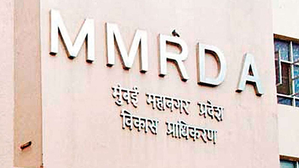Mumbai: The Mumbai Metropolitan Region Development Authority (MMRDA) at its 158th meeting chaired by Maharashtra Chief Minister Eknath Shinde on Tuesday gave approval for a number of development projects to enhance connectivity, infrastructure, and economic development within the Mumbai Metropolitan Region (MMR).
The meeting also focused on vital urban development projects and the revision of development plans for strategic zones such as Backbay Reclamation.
Tuesday’s meeting took place days after the state government released its plan to develop MMR as global economic hub, increasing its economy to $300 billion by 2030 from the current level of $140 billion as per the recommendations made by the NITI Aayog.
MMRDA approved a revised draft development plan for the Backbay Reclamation Scheme (Blocks III to VI) prepared under Section 26 of the Maharashtra Regional and Town Planning Act, 1966.
The revision takes into account ongoing projects by other government and non-government organisations in the area, including slum rehabilitation and metro projects.
The draft plan divides the area into residential and commercial zones, with special attention to natural features such as beaches and mangroves. It includes the expansion of the New Legislative Building and the introduction of new link roads, among them a proposed connectivity between Netaji Subhash Chandra Marg and Jagannath Bhosle Marg.
Additionally, a dedicated marina for tourism is proposed, which will include ports for small boats and yachts to boost tourism in the area.
The MMRDA also gave an administrative approval for the preliminary alignment report of an access-controlled highway connecting Kalyan, Dombivli, Ulhasnagar, Ambernath, and Badlapur with Mumbai and Navi Mumbai.
The project, estimated at Rs 10,833 crore, aims to cut travel time between these cities and Mumbai to 60 minutes and Navi Mumbai to 30 minutes.
The highway will provide direct connectivity to the upcoming Navi Mumbai International Airport and Navi Mumbai Airport Influence Notified Area (NAINA), while also reducing congestion in Thane and nearby highways.
The project will feature an eight-lane divided carriageway with service lanes, ensuring a design speed of 80 km/h.
Major interchanges are proposed with key roadways, including the Mumbai-Vadodara Spur, Katai-Badlapur and the Kalyan Ring Road.
The MMRDA also gave approval for the allotment of a commercial plot at Bandra Kurla Complex for the construction of a new administrative office for the National Payments Corporation of India (NPCI).
NPCI, a key player in India’s digital payment infrastructure, will benefit from a built-up area potential of five lakh square feet. This initiative aligns with the government’s focus on promoting fintech and digital innovation in Mumbai.
Moreover, the MMRDA gave administrative approval for the implementation of economic plan for MMR. It envisaged development of MMR as a global economic hub.
It cleared the formation of a dedicated “Project Implementation Unit” and a “Business Development Cell” to execute the region’s Economic Master Plan.
This ambitious roadmap, jointly developed by NITI Aayog and the Maharashtra government, will position MMR as a central growth hub in India.
The Authority also granted initial budgetary approvals of up to Rs 100 crore for 2024-25 to start the execution of this master plan.
The Chief Minister said, “The MMR holds a critical position in India’s economic landscape. Through strategic planning and collaborative efforts with global entities such as the World Economic Forum, we will ensure that Mumbai continues to thrive as a global city. This Economic Master Plan will guide us towards sustainable development, creating opportunities for businesses and residents alike. This revised development plan reflects a careful balance between modernisation, environmental conservation, and the socio-economic needs of the local population. The proposals, such as the new legislative building and the ‘Marina’ tourism project, will bring significant benefits to the region without disrupting the livelihoods or ecology of the area.”
MMRDA Commissioner Sanjay Mukherjee emphasised the Authority’s commitment to sustainable and inclusive urban development.
He said, “At MMRDA, we are focused on creating a balanced approach to growth that integrates infrastructure development, environmental conservation, and the well-being of local communities. The revised development plans and major connectivity projects, such as the Backbay Reclamation and the access-controlled highway, are critical to shaping the future of the Mumbai Metropolitan Region. Our vision is to enhance connectivity, promote economic growth, and ensure that every project respects the natural and social fabric of the region.”
–IANS


Comments are closed.